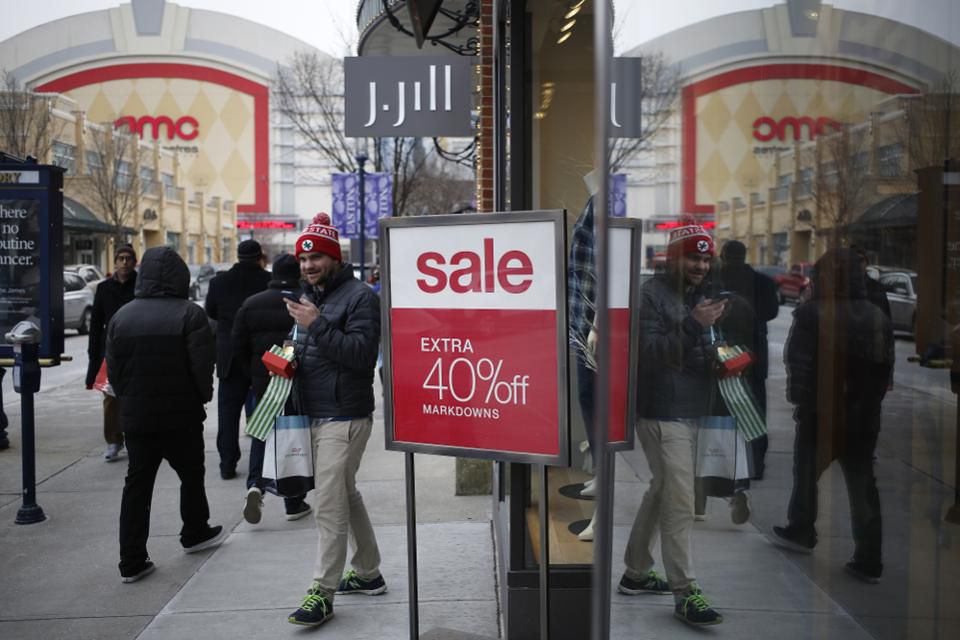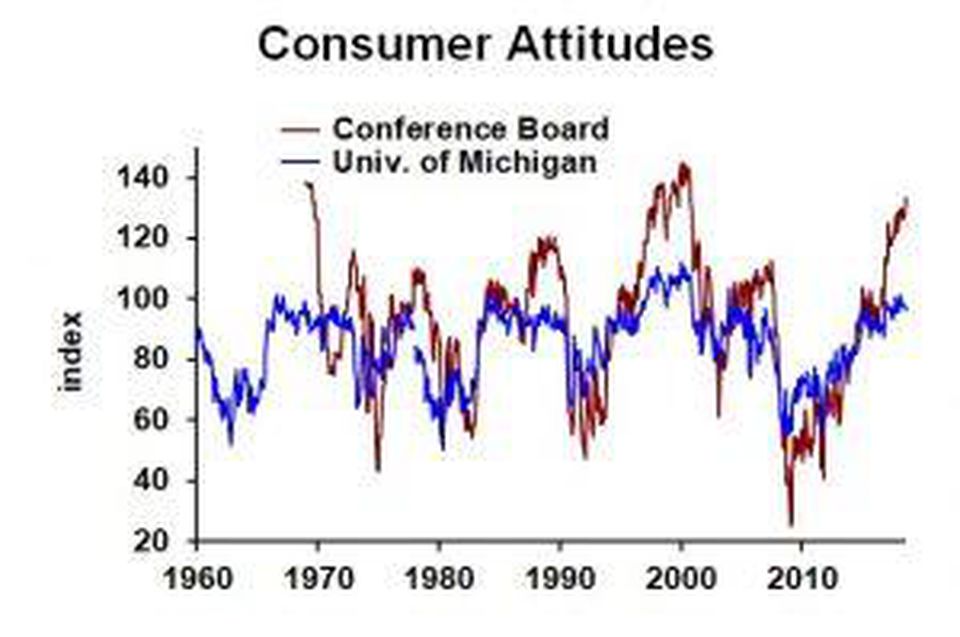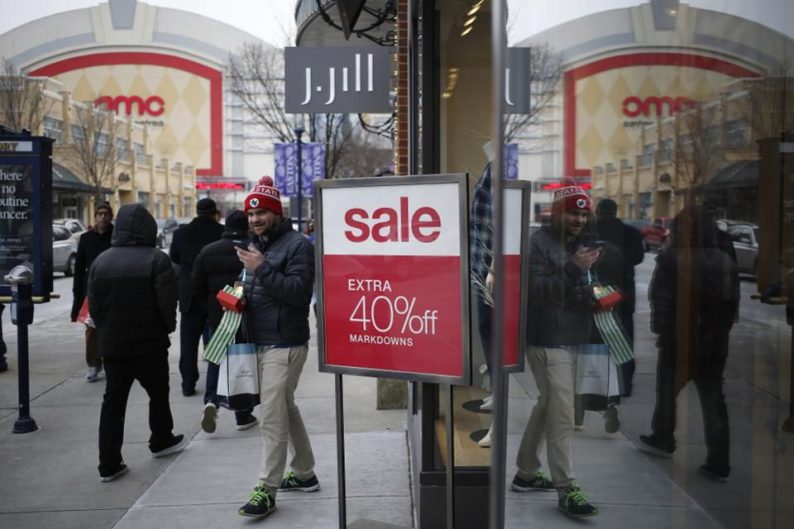
Photographer: Luke Sharrett/Bloomberg
The two main surveys of consumers show mixed results right now, but that mostly happens when times are very good or very bad. Right now times are very good.
The Conference Board Consumer Confidence Survey is high and rising. The University of Michigan’s Survey of Consumers is little changed since late 2016. The two survey index values were about equal in February 2016. Since then, the Michigan survey has increased five percentage points, while the Conference Board measure has gained 45%. Wowzer! That’s a big difference. Are consumers mildly happier or hugely happier?
The two surveys both try to assess the attitudes of typical consumers, but they ask different questions to different samples of people. Most strikingly, the Conference Board’s survey has higher highs and lower lows over it nearly 50-year history. Take a close look at the accompanying chart. The two series generally tell the same story, but extremes are more pronounced in the Conference Board series.

Consumer confidence and consumer sentiment
DR. BILL CONERLY BASED ON DATA FROM THE CONFERENCE BOARD AND THE UNIVERSITY OF MICHIGAN
So which is more useful? Consumer spending is mostly driven by disposable income, which in turn is mostly a product of jobs and wage rates. (Other sources of income are included in the measure, and taxes are subtracted.) If I had to predict consumer behavior with only one variable, I would choose disposable income. Given a second variable, I’d grab the University of Michigan survey. I came to this conclusion with some statistical analysis. The Conference Board measure would be my next choice if the Michigan data were not available—it does nearly as well in helping to predict consumer spending. Interest rates, by the way, are not nearly as useful as measures of consumer attitudes.
But maybe we don’t need consumer surveys themselves. Consumer attitudes are mostly driven by economic fundamentals: jobs, wages, and inflation. Occasionally, though, some non-economic event comes along that changes attitudes independently of the economy. The first Gulf War, in 1990, was such an event, as was the election of Donald Trump. So it pays to keep an eye on consumer attitudes, especially when non-economic events are in the news.









Leave A Comment